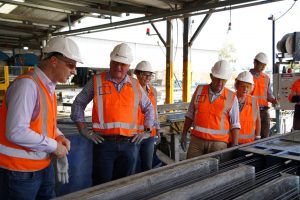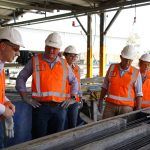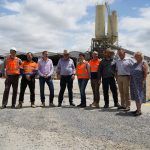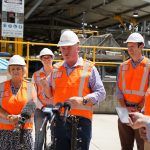 The Australian Rail Track Corporation (ARTC) awarded Vossloh, through its Australian subsidiary Austrak a EUR 90 million contract to supply 1.3 million concrete sleepers for the construction of Albury – Illabo section of Inland Rail project.
The Australian Rail Track Corporation (ARTC) awarded Vossloh, through its Australian subsidiary Austrak a EUR 90 million contract to supply 1.3 million concrete sleepers for the construction of Albury – Illabo section of Inland Rail project.
The Deputy Prime Minister of Australia Barnaby Joyce has made the announcement on February 3, 2022, at Vossloh’s Rockhampton site. Around 95 workers, including 30 new positions supported by this contract commitment, will manufacture the sleepers at Austrak’s sites in Rockhampton and Wagga Wagga.
In January, Vossloh has also signed a EUR 50 million contract for the delivery of switch systems for Inland Rail for the next 5 years.
Austrak has already provided around 225,000 sleepers for the Narrabri to North Star section of Inland Rail.
The Albury – Illabo railway section comprises 185 km of existing track which is already upgraded but needs enhancements to provide sufficient height and width to support the safe running of double-stacked freight trains. The works include modifications to structures such as footbridges and road bridges, signal structures, aerial cables and level crossings.
The line offers transport connection from the border of New South Wales and Queensland to Illabo, in the regional area of New South Wales.
In May 2021, ARTC Inland Rail started the competitive tender process to appoint a main contractor to manage the detailed design and construction of the Albury – Illabo section. A contractor is expected to be appointed in mid-2022.
The 1,700 km rail corridor linking Melbourne and Brisbane via regional Victoria, New South Wales and Queensland will provide better connections delivering faster and more reliably freight transport services.
The construction is well underway on along the corridor under 13 distinct projects comprising the 103 km Parkes – Narromine section which is already in operation and early works started on the 184 km Narrabri – North Star rail section.
For Inland Rail, ARTC has already signed design and construction contracts worth more than AUD 2.2 billion (USD 1.57 billion).
Share on:






